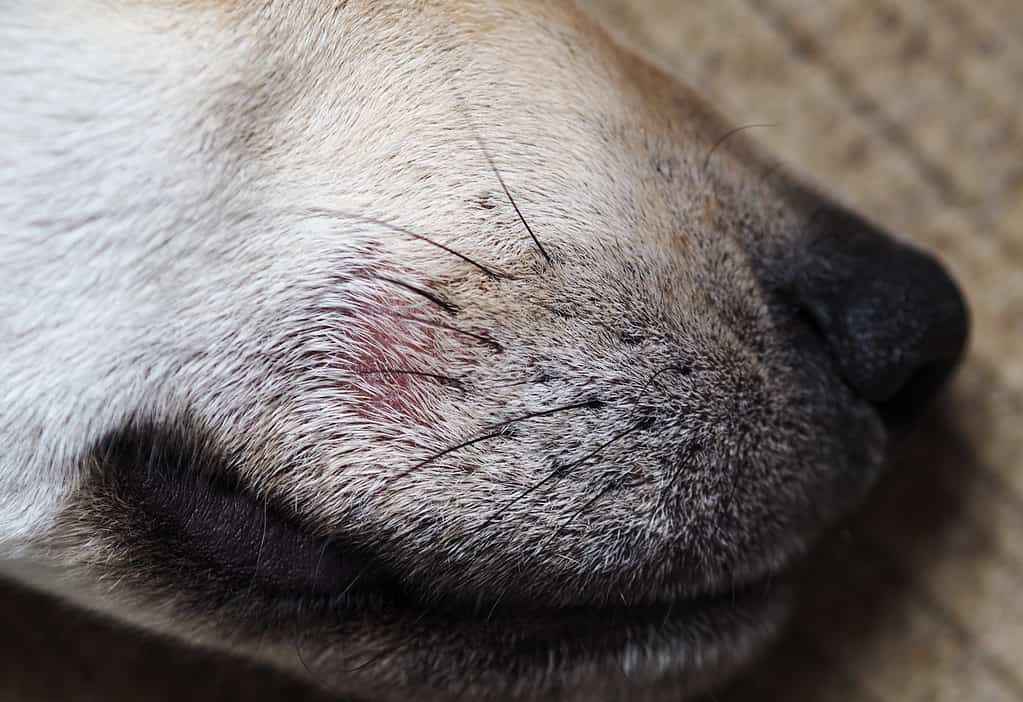How long do Whippets live? The answer to this question is not so simple; it depends on several factors like genetics, nutrition, exercise, and much more. But, while Whippets have many health issues, some can live to ripe old ages if cared for properly. Below is an article about the Whippet lifespan, including the oldest Whippet on record, the most common cause of death, and health conditions.
Whippet Lifespan

Whippets have an average lifespan of 12 to 15 years. While this breed is generally fit and active, their love for wildlife can lead to death on the road or fatal accidents in the forest.
©Liliya Kulianionak/Shutterstock.com
Whippets have an average lifespan of 12 to 15 years. While this breed is generally fit and active, their love for wildlife can lead to death on the road or fatal accidents in the forest. Furthermore, this breed is prone to heart disease and doesn’t respond well to anesthesia should they ever need surgery. However, you can extend your Whippet’s lifespan by taking it to the vet for regular checkups and training it well so it responds to commands that will keep it safe.
What Is the Most Common Cause of Death in Whippets?
The most common cause of death in Whippets is heart failure. Unfortunately, the majority of heart disease in this breed is caused by a weakening valve. This happens when a heart valve deforms, preventing it from closing tightly. Pets with this issue usually have a heart murmur. So if you can hear a heart murmur or your dog displays any signs of heart issues, take it to the vet immediately so they can run some tests to determine how severe it is.
How Old is the Oldest Whippet?

What you feed your Whippet is essential to their overall health. Many people believe that a raw diet is the best thing you can do for your Whippet.
If cared for properly, Whippets can live for a long time, but depending on the lineage, care, and environmental factors, many believe that 15 is a good age. However, the oldest Whippet lived to 21 years old, but many people online claim that their Whippets are 23 and older. What you feed your Whippet is essential to their overall health. Many people believe that a raw diet is the best thing you can do for your Whippet. Furthermore, regular exercise is also extremely important, as you want to keep your companion fit and healthy.
Do Whippets Have Health Problems?
Unfortunately, this breed is susceptible to many health problems, including:
Infections
These poor dogs are susceptible to viral and bacterial infections. Sadly, they have fallen victim to conditions like rabies, parvo, and distemper. But luckily, many of these infections are preventable through vaccinations.
Obesity
Because Whippets are so lean, obesity is a significant health scare that should not be overlooked. For example, severely overweight whippets can develop metabolic and digestive disorders and potentially worsen joint problems.
Parasites
Whippets are very susceptible to parasites, like ticks or ear mites that infest ears. Furthermore:
- Roundworms
- Hookworms
- Whipworms
These dogs can contract these parasites in several ways, including being bitten and infected by a mosquito, drinking unclean water, and walking on contaminated soil. Parasites in dogs may cause discomfort, pain, and death. As a result, schedule a call with your vet every few months.
Eye Problems
Unfortunately, Whippets have eye problems, which are usually genetic. There are various types of eye conditions, and some lead to blindness if they are left untreated. Furthermore, it can be very painful. For example, cataracts are common in older Whippets and can lose their eyesight. However, many dogs that lose their sight usually adjust well. There is a surgery that can remove cataracts and restore some vision. Other issues include Corneal dystrophy and Progressive Retinal Atrophy.
Dental Abnormalities
Whippets are prone to teeth abnormalities, which are often linked to genetics. For example, they are prone to a condition called Oligodontia, where they only have a few teeth.
Allergies
These dogs are prone to allergies, but unlike humans, they don’t sneeze, and their eyes don’t itch. However, their skin starts to itch. Unfortunately, the belly, skin, feet, ears, and folds are the most affected. You can begin seeing symptoms around the age of one or three, and it will worsen each year. Furthermore, the most common signs of allergies include rubbing their face, licking their paws, and recurring ear infections. Whippets can also be allergic to food, and this allergy can start at any age. However, it is most common in young adults. Symptoms may include recurring ear infections, itchy skin, diarrhea, and chronic vomiting.
Mange

Your dog may display a few irritated, dry, and hairless lesions, often occurring on the head or paws. Some are itchy, but some dogs might not show any signs of discomfort.
©Kreuzschnabel / CC BY-SA 3.0 – License
All dogs have a microscopic mite that inhabits their hair follicles, called Demodex. While many breeds have a strong enough immune system to fight these mites, Whippets develop them in abundance. Your dog may display a few irritated, dry, and hairless lesions, often occurring on the head or paws. Some are itchy, but some dogs might not show any signs of discomfort. If you see any worrying signs, take your Whippet to the vet immediately to prevent the mites from getting out of hand. Some dogs outgrow this issue, but others suffer from it throughout their lives.
Hair Loss
Whippets are susceptible to pattern baldness in both males and females. Just like balding humans, their fur falls out gradually but never grows back. Their bald patches are not itchy, but the skin will become dry. The most common areas affected by pattern baldness are the chest, throat, belly, and inner legs. If you notice your Whippet is losing hair, take them to the vet because they can check for treatable problems, like a thyroid condition. However, if the diagnosis is true pattern baldness, unfortunately, there is no cure. But, there are supplements or hormones they can recommend, which could help.
Thyroid Problems
Hypothyroidism is a common condition in Whippets. This condition prevents the body from making enough of the thyroid hormone. Symptoms include hair loss, dry coat and skin, weight gain, susceptibility to skin diseases, aggression, fearfulness, or other behavioral issues. Vets can conduct a yearly blood screening test to check for this condition. It is easily treated with replacement hormones in pill form.
Bone and Joint Problems
Whippets are prone to patellar luxation, which is when the kneecap slips out of the socket. This is noticeable as the dog may run and suddenly skip or pick up their back legs or hop for a few strides. However, they usually kick their leg out sideways, popping the kneecap back in place. If the issue only involves one leg and is mild, treatment usually requires arthritis medication. However, if the symptoms are severe, the kneecap may need realignment, which requires surgery, to prevent it from popping out again.
What Age Do Whippets Slow Down?
Most puppies are destructive, and whippets are no different. These dogs are pretty mischievous and full of energy. Furthermore, their agility can land them in even more trouble. Therefore, a Whippet puppy should always be put in a crate or playpen when no one supervises. In addition, they require many chew toys and stimulation to keep them from getting bored. This breed is more athletic than other dogs, so they are very good at escaping pens, puppy gats, and more because they are good climbers. So, ensure their safe space is escape-proof. Whippets will start to slow down at around two years of age.
The photo featured at the top of this post is © iStock.com/Ashva
Ready to discover the top 10 cutest dog breeds in the entire world?
How about the fastest dogs, the largest dogs and those that are -- quite frankly -- just the kindest dogs on the planet? Each day, AZ Animals sends out lists just like this to our thousands of email subscribers. And the best part? It's FREE. Join today by entering your email below.
Thank you for reading! Have some feedback for us? Contact the AZ Animals editorial team.







